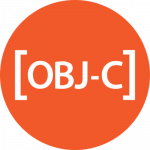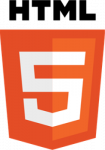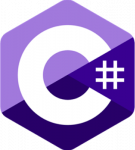Table of Contents
Creating an application for iOS devices, such as the iPhone and iPad, is an ideological goal for numerous developers. Given that there are more than one billion active iPhone consumers worldwide, it is unsurprising that the iOS app ecosystem represents a substantial and profitable market.
Apps successfully released on the Apple App Store can be utilized and adored by billions of iOS users annually, who spend billions of dollars on applications.
However, before implementing your app concept on iOS, you must make a crucial decision regarding the programming language: Which language is best for iOS development? iOS developers may be attracted to new and established programming languages, making it difficult to determine which is most suitable for your application plans.
More About iOS Development Languages
This guide comprehensively overviews the six most popular iOS App Development Languages. Whether you are a novice app developer or a seasoned iOS programmer, comprehending the available options will assist you in selecting the most suitable tool for your upcoming iOS endeavor.
We will examine what makes each language unique, their advantages and disadvantages, and the types of apps they are best suited for.
By the end of this guide, you will have all the knowledge you need to confidently decide on the perfect programming language for the iOS app vision to life! Let us explore the top options for iOS development in 2024.
iOS App Development Statistics
Before we dive into the languages themselves, it’s useful to ground ourselves in some key statistics that demonstrate the impressive growth and scale of the overall iOS app market:
- According to Market Research Future, the global mobile apps market was valued at $208.5 billion in 2022. But by 2032, they expect it to grow to an enormous $777.4 billion – a CAGR of 19.6%!
- Apple currently holds a commanding 17.7% share of the smartphone market. And iOS users are highly engaged, with 25% more time spent on apps than Android users.
- There are over 1.8 million apps accessible on the Apple App Store, showing the thriving ecosystem of iOS developers.
- The average US iPhone user has over 100 apps installed and spends 5 hours a day using apps. IOS apps are deeply embedded in people’s daily lives.
The statistics indicate that although the iOS application market is already enormous, it has ample space to continue growing in the years to come. Across all app categories – from social and gaming to productivity and lifestyle – iOS offers the potential for enormous success for any form of application.
By selecting the appropriate programming language, you can position yourself favorably to develop the next major iOS application!
Best Languages for iOS App Development in 2024
With the growth of the iOS app market, developers have an increasing number of programming language options for building iOS apps. Here are 6 of the top iOS Application Development languages in 2024:
1. Swift

Swift is a general-purpose, multi-paradigm, compiled programming language developed by Apple for iOS, macOS, watchOS, and tvOS app development.
It was first released in 2014 and intended as a replacement for Objective-C. Swift has quickly become one of the most popular languages for iOS development.
Key Features of Swift

1) Syntax is easy to learn and work
2) Offers quick processing speed and early improvements
3) Supports both pattern-oriented and functional programming.
4) Provides strong error-handling functionalities
5) Compatible with Objective-C programs
When to Leverage Swift?
Swift is the ideal choice for most new iOS app development projects. The substantial benefits of using Swift include:
a) Faster coding – Compared to Objective-C, less code is needed. It is simple to read and write the syntax.
b) Safer code – Swift’s type safety feature removes frequent crashes and glitches.
c) Fully supported by Apple – Apple continuously upgrades and optimizes Swift.
d) Future proof – Swift will remain one of the most popular iOS languages as Objective-C diminishes.
Popular Apps Built Using Swift
Many top apps have been built entirely using Swift, including:
a) Uber
b) Lyft
c) Amazon Alexa
d) YouTube
e) Google Pay
f) LinkedIn
2. Objective-C

Objective-C is a precise, general-purpose, and object-oriented development language utilized primarily for developing apps on Apple platforms. It powers much of the software written for macOS and iOS. Objective-C was the principal development language utilized for iOS before the introduction of Swift in 2014.
Key Features of Objective-C

1) Message passing and dynamic runtime allow for rapid development
2) Highly interoperable with Swift and C++ code
3) Mature language with extensive frameworks and developer tools
4) Apple continues to support Objective-C even as Swift usage grows
5) Can leverage C code and libraries for performance
When to Leverage Objective-C?
While most new iOS apps are coded in Swift, there are still some cases where using Objective-C can be advantageous:
a) Legacy iOS apps – Apps originally written in Objective-C can leverage existing code.
b) Libraries and dependencies – Reusing mature Objective-C frameworks can save time.
c) Algorithmic processing – Objective-C can execute compute-intensive tasks efficiently.
d) Need compatibility – Apps that still need to support older iOS versions may require Objective-C.
Popular Apps Built Using Objective-C
Many iOS apps were originally built with Objective-C, including:
a) Facebook
b) Instagram
c) Apple Maps
d) Apple Music
e) Dropbox
f) eBay
3. Java

Java is a widely used general-purpose programming language suitable for many development needs. For iOS, Java code must be run in the Dalvik VM provided by the Android subsystem. This allows Java apps to run on iOS, leveraging the same codebase as Android apps.
Key Features of Java

1) Strong typing and object-oriented design
2) Excellent memory management and security features
3) A vast ecosystem of libraries and frameworks
4) Platform independent – can be run on iOS and Android
5) The familiar language used by millions of developers
When to Leverage Java?
Java is a good option when you require:
a) Code sharing – You want to reuse existing Java business logic or Android app code on iOS.
b) Cross-platform – The product requirements call for the same app on both Android and iOS.
c) Existing skill sets – Your team already has significant experience with Java.
d) Rapid development – Fast prototyping is needed to build the iOS app using mature Java tools.
Popular Apps Built Using Java
Many Android apps have been ported to iOS using Java, including:
a) Netflix
b) Amazon Kindle
c) Microsoft Office Apps
d) Spotify
e) eBay
4. HTML5

HTML5 denotes the newest version of the HTML standard with additional JavaScript APIs that allow the building of progressive web apps that can run natively on iOS. The apps are wrapped in a native container and can leverage device capabilities like push notifications, cameras, GPS, etc.
Key Features of HTML5

1) Write once, run anywhere, code works across multiple platforms
2) Leverage web development skills and resources
3) Faster development through the use of JavaScript frameworks like React Native
4) Supported by all modern mobile browser engines
5) Can build PWAs or package as native app binary
When to Leverage HTML5?
HTML5 is ideal when you need:
a) Cross-platform – Support web, Android, iOS, and desktop apps from a single codebase.
b) Quick development – Build MVP quickly, leveraging web developer skills and resources.
c) Progressive enhancement – The app works across devices while adding native features incrementally.
d) Code sharing – Reuse business logic or UI written for the web app version.
Popular Apps Built Using HTML5
Many hybrid mobile apps leverage HTML5, including:
a) Twitter
b) Starbucks
c) Uber Eats
d) PhoneGap
e) Cordova
5. C#

C# is an elegant, type-safe, object-oriented language ideal for building many types of apps. For iOS, C# code is compiled using Xamarin tools into native iOS app binaries. This allows sharing app logic across iOS, Android, and Windows.
Key Features of C#

1) Strongly typed, fast-executing code similar to Java and C++
2) .NET ecosystem provides extensive libraries and runtime
3) Asynchronous programming model ideal for mobile apps
4) Xamarin tools enable native iOS apps using C# code
5) Integrates well with Visual Studio IDE and developer tools
When to Leverage C#?
C# works well when you need:
a) Code sharing – Share significant app logic across mobile platforms.
b) Visual Studio tool – Leverage Microsoft’s mature IDE and developer tools.
c) C# skills – Utilize existing C# codebase, libraries, and team skills.
d) Better Performance – Parts of the app demand highly efficient code execution.
Popular Apps Built Using C#
a) Microsoft Office Apps
b) Amazon Books
c) Olo Restaurant Ordering
d) Storyo
e) Sworkit Fitness
So, the vibrant iOS ecosystem rewards apps that provide meaningful value to users, regardless of the underlying code or language powering them. Consequently, you must focus on crafting an outstanding user experience and choose the best language to make your vision a reality!
Choosing the Right iOS Programming Languages for Your App Development Needs
The iOS ecosystem provides developers various iOS app programming language options for building apps. While newer apps are commonly built with Swift, many successful developers leverage languages like Objective-C, Java, JavaScript/HTML5, C#, or C/C++ in the right circumstances.
The key is mapping app requirements to the best programming language for iOS app development that makes the most sense for your team and the challenges. With a thoughtful approach, virtually any language can deliver a high-quality iOS app that delights users. The vibrant, growing iOS market rewards great apps regardless of the underlying programming language.
As a leading iOS app development company, iCoderz has successfully delivered highly effective and professional iOS applications using diverse programming languages for worldwide clients. Our talented and skilled iOS development teams can avail of proficient iOS app development services at affordable rates.
Elevate Your App Game with Top iOS Programming Languages!





